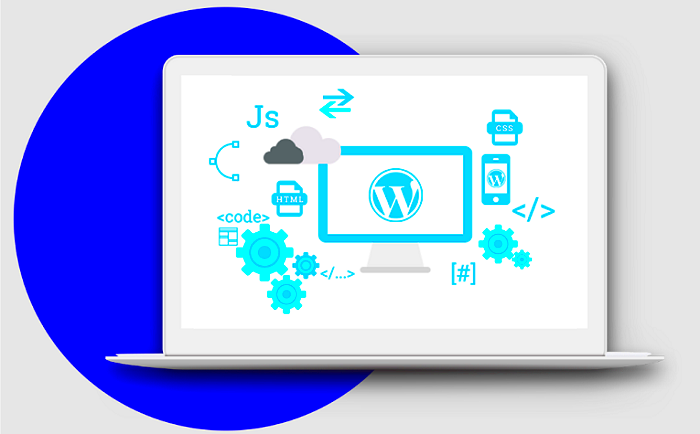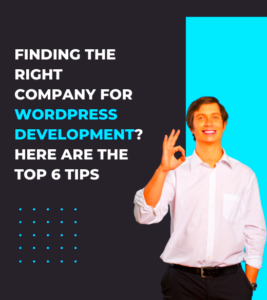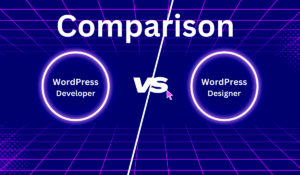In the ever-evolving digital landscape, having a website that stands out is crucial for any business. Custom WordPress development offers tailor-made solutions that cater to your unique requirements. Unlike generic themes or plugins, custom solutions can enhance your website’s functionality, design, and user experience. So, if you’re considering a website revamp or starting from scratch, understanding what custom WordPress development entails is essential. Let’s dive deeper into why it’s vital and what to keep an eye on when looking for these services.
Understanding Your Business Needs
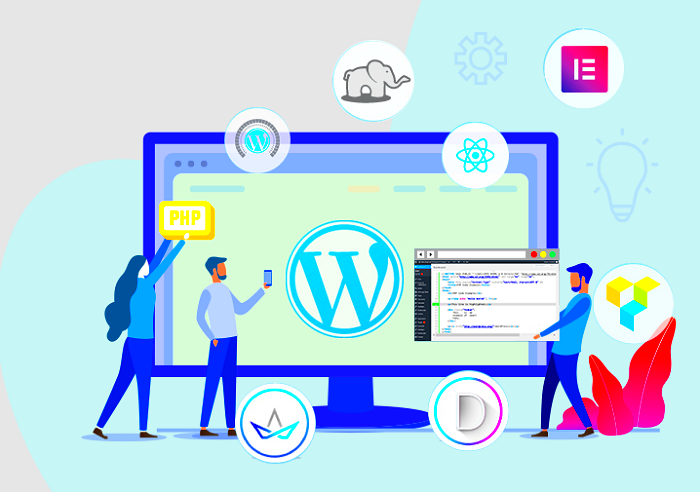
Before jumping into custom WordPress development, it’s vital to grasp your business needs. A well-defined strategy will ensure that the development process aligns perfectly with your goals. Here are some essential points to consider:
- Business Goals: What are you hoping to achieve with your website? Increased sales, better customer engagement, or simply an online presence?
- Target Audience: Who are you trying to reach? Understanding your audience will help tailor the website’s design and functionality.
- Competitive Analysis: look at your competitors’ websites. What features do they offer? What are their strengths and weaknesses? This analysis can help you pinpoint areas to improve.
- Budget: Establish a realistic budget that combines development costs, hosting fees, and ongoing maintenance.
- Future Growth: Consider scalability; your website should be able to grow with your business without needing a complete overhaul.
Once you clearly understand your business needs, it becomes easier to communicate with developers. They’ll have a better idea of what features and functionalities you desire. This conversation is crucial in ensuring the custom development process is seamless and tailored to fit your vision. Remember, a one-size-fits-all approach often falls short!
Key Features of Custom WordPress Development Services
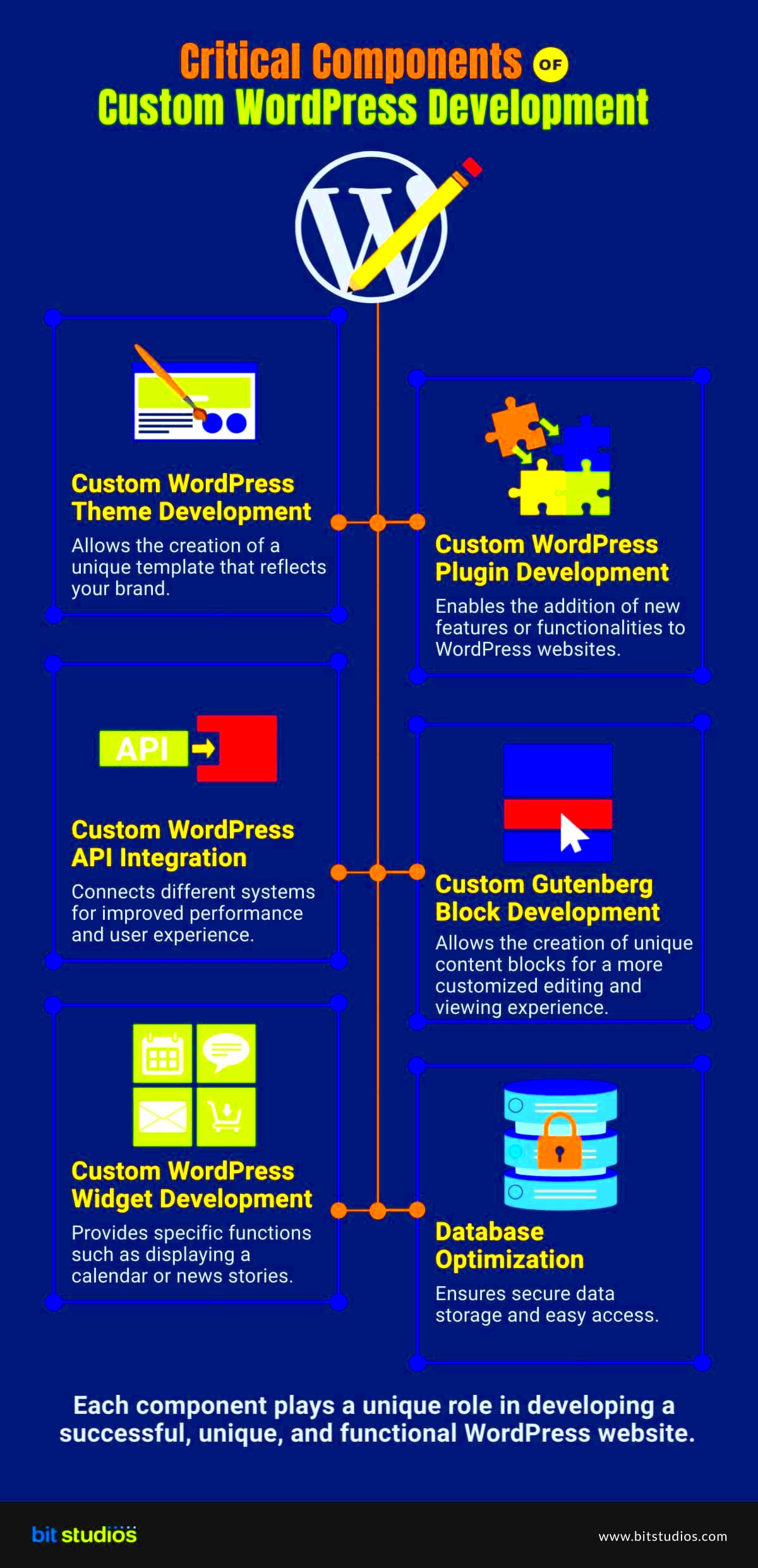
When diving into the world of custom WordPress development, it’s essential to understand the key features that differentiate this service from standard offerings. Custom solutions are tailored specifically to meet your unique needs, and here are some vital features you should consider:
- Custom Theme Development: A significant aspect of custom WordPress development is creating a unique theme that reflects your brand identity. This means tailoring everything from layout to aesthetics to ensure your site stands out.
- Plugin Development: While many plugins exist, sometimes they don’t offer the specific functionality you’re after. Custom development allows you to build plugins that cater specifically to your business needs, enhancing your site’s functionality without bloat.
- Responsive Design: In today’s mobile-first world, ensuring that your site looks great on every device is crucial. Custom development ensures your site is responsive, providing an excellent user experience across all platforms.
- SEO Optimization: A custom solution can incorporate SEO best practices from the start. This includes optimizing site speed, structuring URLs, and ensuring your site is indexable by search engines.
- Security Features: With the proliferation of cyber threats, enhancing your site’s security is non-negotiable. Custom development provides tailored security measures to safeguard your website against vulnerabilities.
- Ongoing Support and Maintenance: Many custom development services offer ongoing technical support to ensure your website runs smoothly. This can include updates, troubleshooting, and feature enhancements.
Evaluating the Expertise of Developers
When you’re in search of custom WordPress development services, evaluating the expertise of potential developers is key to a successful partnership. Here are some tips to help you assess their qualifications and fit for your project:
- Portfolio Review: Always start by reviewing the developer’s previous work. A solid portfolio showcases their range of skills and their ability to deliver unique solutions. Look for projects that align with your vision.
- Client Testimonials: Feedback from previous clients can give you insight into the developer’s reliability and the quality of their work. Seek out reviews on third-party sites to get an unbiased perspective.
- Technical Proficiency: Ensure that the developer is well-versed in the latest technologies and practices related to WordPress. This includes familiarity with PHP, JavaScript, HTML, CSS, and other relevant tools.
- Communication Skills: Effective communication is vital for any successful project. A good developer should be able to articulate their ideas clearly and be responsive to your needs and concerns.
- Understanding of SEO and UX: Expertise in search engine optimization (SEO) and user experience (UX) is crucial for building a successful website. Developers should demonstrate a solid grasp of these concepts in their previous work.
- Continuous Learning: The digital landscape is ever-evolving. Evaluate whether the developer is committed to staying updated with the latest WordPress developments and trends. This is essential for long-term success.
5. Important Technologies and Tools
When it comes to custom WordPress development, the technologies and tools employed can make a world of difference in the final product. Selecting the right set can influence not just the functionality and performance of your website but also the ease of maintenance and scalability. Here’s a look at some essential technologies and tools that you might want to consider:
- PHP: This is the backbone of WordPress. A strong grasp of PHP is necessary for custom development, as it’s the primary server-side language used to create dynamic content.
- JavaScript: With WordPress evolving, JavaScript has become crucial for enhancing the user interface. Tools like jQuery make it easier to handle events and make AJAX calls.
- HTML/CSS: For styling and structuring your site, knowledge of HTML and CSS is indispensable. A solid foundation will result in cleaner code and better-performing sites.
- MySQL: This is the database management system used by WordPress. Understanding how to interact with MySQL can help you manage data more effectively.
- Git: Version control is essential for collaborative projects. Git allows developers to track changes and collaborate seamlessly.
- Page Builders (like Elementor or WPBakery): These tools can help speed up the design process and allow for more flexibility without extensive coding.
Additionally, consider looking into tools for SEO like Yoast, security solutions like Wordfence, and performance optimization tools such as WP Rocket or W3 Total Cache. Together, these technologies and tools create a powerful arsenal for delivering robust custom WordPress websites.
6. Designing for User Experience
In today’s fast-paced digital landscape, focusing on user experience (UX) is more crucial than ever, especially in custom WordPress development. UX design goes beyond simple aesthetics; it’s all about how easily users can navigate your site, find information, and complete desired actions. Here are some key principles to ensure an exceptional UX:
- Responsive Design: With the prevalence of mobile devices, your site must be responsive—meaning it should look and function well on desktops, tablets, and smartphones alike.
- Intuitive Navigation: Users should easily find their way around your site. A well-structured menu, breadcrumbs, and a search feature can significantly enhance navigation.
- Fast Loading Times: No one wants to wait for a site to load. Use tools to optimize images, minimize code, and leverage caching techniques to improve speed.
- Consistent Branding: Your design should reflect your brand’s identity. Consistent color schemes, fonts, and imagery establish trust and recognition.
- Accessible Design: Inclusivity is essential. Implement accessibility best practices to ensure your site is usable for everyone, including individuals with disabilities.
- Visual Hierarchy: Use size, color, and placement to guide users toward the most important information or actions, making it easier for them to engage.
By prioritizing user experience, you not only improve satisfaction but also boost engagement, which can significantly impact conversion rates. In a nutshell, great UX design is not just an option; it’s a necessity for successful custom WordPress development.
SEO Considerations in Custom Development
When diving into custom WordPress development, one crucial aspect that shouldn’t go overlooked is Search Engine Optimization (SEO). Effective SEO strategies can significantly enhance the visibility of your site, driving organic traffic and boosting your brand’s reach. Here’s what to consider:
- Responsive Design: Search engines favor websites that perform well on various devices. Make sure your custom development includes a responsive design that caters to both desktop and mobile users.
- Clean Code: The foundation of SEO lies in well-structured and clean code. Ensure your developers maintain best practices in coding, which can lead to faster load times and better indexing by search engines.
- SEO-Friendly URLs: Work with your developers to create user-friendly URL structures. Meaningful URLs not only improve user experience but also signal to search engines what the page is about.
- Meta Tags and Descriptions: Custom development should allow for easy integration of meta tags, titles, and descriptions for every page. These elements help search engines understand the content and help drive click-through rates.
- Image Optimization: High-resolution images enhance user experience but can slow down your site. Developers should optimize images for the web to strike that perfect balance.
- Compatibility with SEO Plugins: Ensure that the custom theme or plugins being developed are compatible with essential SEO tools like Yoast SEO. This can greatly enhance your ability to manage SEO effectively.
In summary, while focusing on the aesthetics and functionality of your custom WordPress site, never forget the SEO foundations. A well-optimized site will not only look good but will also rank well, driving traffic and fostering growth for your online presence.
Budgeting for Custom WordPress Development
Many businesses often overlook the importance of budgeting when considering custom WordPress development. Having a clear budget helps align expectations and ensure that projects stay on track financially. Here’s what you should factor into your budgeting process:
- Scope of Work: Define the features and functionalities you need. The more complex the requirements, the higher the cost. Be clear about your vision and articulate it to your developer.
- Development Costs: Custom development can range widely in pricing. Freelancers may charge less, but agencies can provide a broader range of services and expertise. Average rates can vary between $50 to $200 per hour.
- Design & User Experience: Investing in a good design can significantly influence how users perceive your brand. Make sure to allocate part of your budget to user experience (UX) and user interface (UI) design.
- Maintenance Fees: Post-launch support is critical for the long-term health of your site. Factor in costs for regular updates, security monitoring, and backups. This is often overlooked, but crucial.
- Hosting and Domain Costs: Don’t forget to include ongoing expenses like domain registration and hosting in your budget plan. These are essential for keeping your site operational.
- Contingency Fund: Finally, it’s wise to set aside a contingency fund of about 10-20% of your total budget. This helps you handle unexpected costs or changes in project scope that often arise.
In conclusion, proper budgeting for custom WordPress development isn’t just a number-crunching exercise; it’s a critical component where your vision meets financial reality. By planning appropriately, you can maximize value and ensure a successful outcome that aligns with your business goals.
Support and Maintenance Services
When you’re investing in custom WordPress development, one of the most critical aspects to consider is the support and maintenance services that come with it. Building a website is just the beginning. You’ll need ongoing support to ensure everything runs smoothly and stays up-to-date. Think of it as having a reliable mechanic for your car; you wouldn’t just drive it off the lot and forget about it, right?
Here are some key points to consider when evaluating support and maintenance services:
- Response Time: Check how quickly the company responds to support requests. Ideally, you want a team that can address urgent issues swiftly.
- Service Availability: Does the service provider offer support 24/7? Depending on your business, having round-the-clock support could be invaluable.
- Regular Updates: A good maintenance service will regularly update your WordPress core, themes, and plugins, reducing vulnerabilities and ensuring compatibility with the latest features.
- Backup Solutions: Ensure your chosen provider offers reliable backup solutions. In case of emergencies, being able to restore your website quickly is crucial.
- Scalability: As your business grows, your website might need more resources or features. Choose a provider that can scale their services according to your evolving needs.
Also, don’t hesitate to ask potential providers about their maintenance packages. Some companies may offer comprehensive plans that include SEO monitoring, performance optimization, and security scans, giving you peace of mind.
Conclusion: Making the Right Choice for Your Custom Development Needs
Choosing the right custom WordPress development service is a unique journey that requires careful consideration. After all, your website is the digital face of your business, and it should reflect your brand’s essence and goals. You wouldn’t want to just opt for the first service that comes your way, right? So, it’s vital to weigh your options thoughtfully.
Here’s a simple checklist to guide you:
- Define Your Goals: Have a clear idea of what you want your website to achieve. This will help you communicate effectively with your chosen developers.
- Assess Their Portfolio: Look at their previous work to gauge their style and vibe. Do they have experience in your industry?
- Evaluate Support Services: As discussed, support and maintenance are key. Ensure they offer robust options.
- Read Reviews: Customer reviews can provide insight into others’ experiences, helping you avoid potential pitfalls.
- Discuss Budget: Understand what you’re getting for your investment. Clear budgets can help prevent unexpected costs down the line.
In conclusion, remember that investing in custom WordPress development is more than just an expense; it’s an investment in your brand’s future. So take your time, ask questions, and choose wisely. You’re not just building a website—you’re building an online presence that resonates with your audience!

